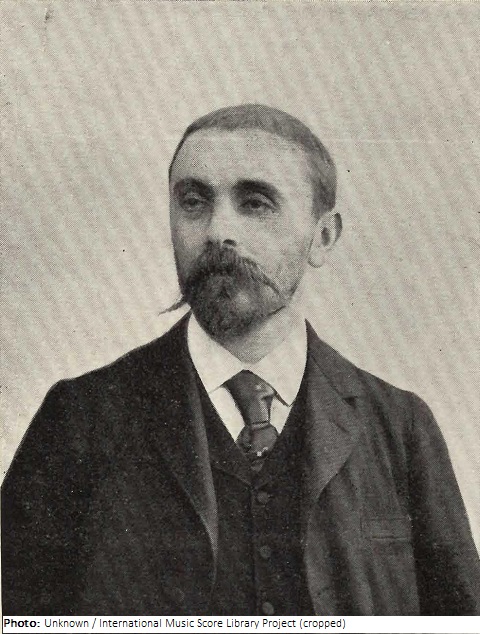
| Roles | Referee |
|---|---|
| Sex | Male |
| Full name | Georges Adolphe•Hüe |
| Used name | Georges•Hüe |
| Born | 6 May 1858 in Versailles, Yvelines (FRA) |
| Died | 7 June 1948 (aged 90 years 1 month 1 day) in Paris Ie, Paris (FRA) |
| NOC |  France France |
Georges Hüe was born into a family of architects. After piano lessons from his mother, he studied counterpoint and fugue as well as organ and composition at the Paris Conservatory. In 1879 he won the Prix de Rome with his cantata Medee, and in 1881 he received the Prix Crescent for his first stage work, the comic opera Les pantins (The Jumping Jacks).
Hüe’s first opera was Le Roi de Paris (The King of Paris), a historical drama; his second, the Shakespeare-inspired Titania, is notable for its impressionistic scenes. His most popular work with the public was Dans l’ombre de la cathédrale (In the Shadow of the Cathedral), dealing with the conflict between socialist and Catholic ideals.
Following his travels in Asia, Hüe wrote Siang-Sin, a ballet pantomime that premiered in 1924. He then continued to devote himself to composing and teaching in Paris, taking Saint-Saëns’ (1835-1921) seat at the Académie des Beaux-Arts in 1922.
In addition to stage works, Hüe also composed works for choirs or solo instruments such as the flute. Stylistically he was strongly influenced by Richard Wagner (1813-1883). In the long run, Hüe’s music was only moderately successful, probably because his style did not change over time. Nevertheless, he was admired by some of his contemporaries among composers.
| Games | Sport (Discipline) / Event | NOC / Team | Phase | Unit | Role | As | |
|---|---|---|---|---|---|---|---|
| 1924 Summer Olympics | Art Competitions |  FRA FRA |
Georges Hüe | ||||
| Music, Open (Olympic) | Final Standings | Judge |